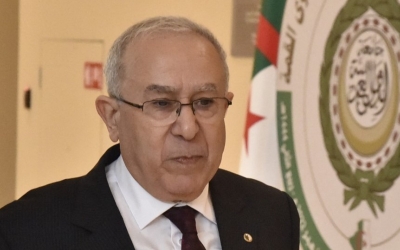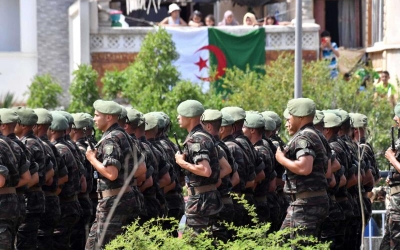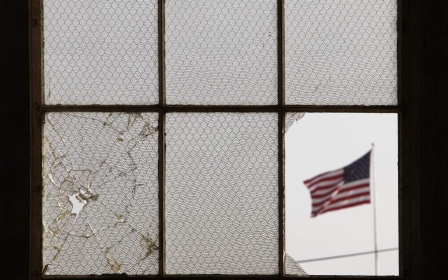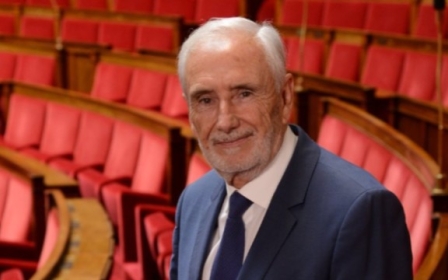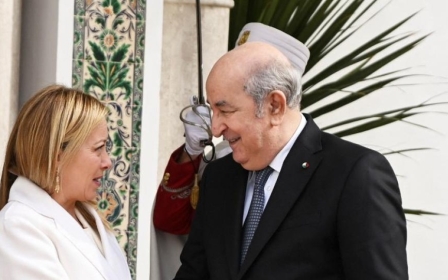Spain trade losses mount as dispute with Algeria drags out
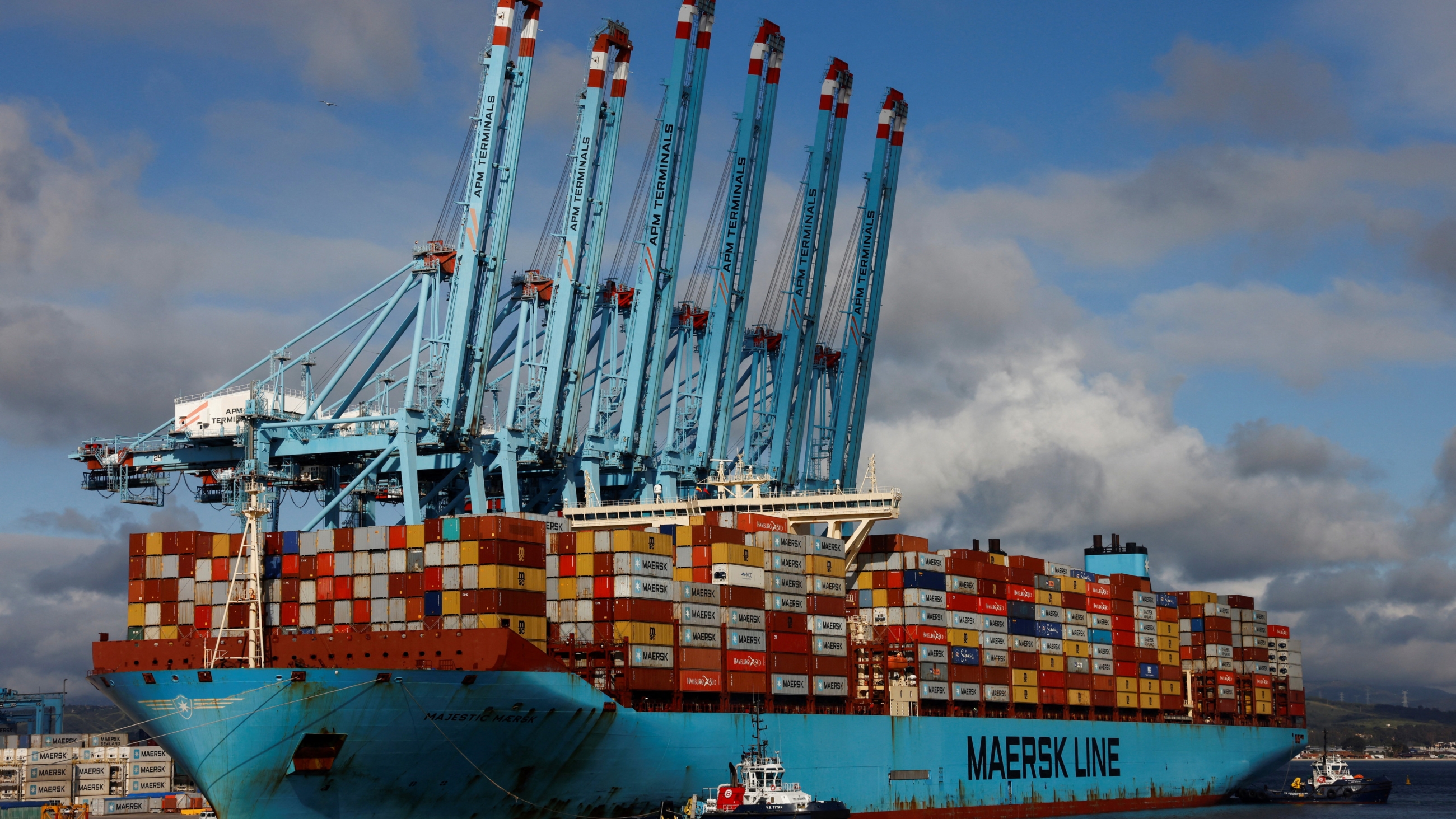
Since the breakdown in relations between Spain and Algeria in June 2022, all trade between the two countries has virtually stopped, except for gas and oil.
Algeria imposed sanctions in the wake of Spain's change of position on Western Sahara, resulting in Spanish exports to Algeria declining by more than 80 percent, according to data analysed by Middle East Eye.
The latest data from the Spanish Ministry of Tourism, Industry and Trade shows that from June 2022 - when Algeria imposed trade sanctions on Spain - to March 2023, Madrid exported a paltry $213m worth of goods.
This compares to more than $1.6bn worth of goods exported to Algeria between June 2021 and March 2022.
In March, Spain exported just $14m worth of goods, forcing the ministry to hold discussions with the European Union to establish a mechanism to funnel aid to some of the most affected Spanish companies.
New MEE newsletter: Jerusalem Dispatch
Sign up to get the latest insights and analysis on Israel-Palestine, alongside Turkey Unpacked and other MEE newsletters
"We have tried different approaches, for example between the Chamber of Commerces [of Algeria and Spain] but we have been refused," Marin Orriols, the international area director from the Barcelona Chamber of Commerce, told MEE.
"Algeria wants the Spanish government to accept the UN resolution about Western Sahara and until then, they will keep the pressure. Basically, this is a political problem affecting the economy of hundreds of Spanish companies."
Orriols said he felt that Spain, and in particular Spanish businesses, have been left to fend for themselves while other EU countries take advantage of the spat.
“The European Union is not doing anything to protect Spain against this decision by Algeria, and Italy and France are taking advantage of the situation to cover the exports that would have gone from Spain to Algeria,” said Orriols.
Little trust
The Western Sahara conflict has been a longstanding source of tension between the two countries.
Spain was the former colonial power in Western Sahara, and its withdrawal in 1975 led to a territorial dispute which led to Morocco capturing the territory. Algeria supports Western Sahara's self-determination.
“It is still unclear what Algeria really wants from Spain to move forward from the current situation,” Zine Labidine Ghebouli, a postgraduate scholar at the University of Glasgow and an Algeria analyst, told MEE.
"Trust between the two leaderships is at their lowest in decades."
Algeria has long been a supporter of the Sahrawi Arab Democratic Republic (SADR), while Spain pursued a more neutral position until it pivoted last year towards Morocco’s position and recognised its claims over the territory. This disagreement has since strained bilateral relations.
“While a clarification from Madrid on its Western Sahara position would have helped to break the ice a few months ago, it is no longer the case and Madrid is in a challenging position as Morocco’s ally from the Algerian perspective,” added Ghebouli.
Algerian President Abdelmadjid Tebboune called Spain’s change of position last year an “unjustifiable turnaround” and proceeded to suspend a 20-year-old treaty of friendship, good neighbourliness and cooperation which had guided relations between the two countries.
The European Union, which is responsible for ensuring that the free trade agreement between the body and Algeria is implemented, has so far only managed to obtain a commitment from the Tebboune government to study the ongoing commercial restrictions.
“For now, Algiers is still comfortable with maintaining the dispute with Madrid given that it is still able to sell its gas,” said Ghebouli.
Between June 2022 and March 2023, Algeria sold more than $6.5bn worth of gas and oil to Spain, buoyed by high energy prices as a result of the Russian-Ukrainian war.
Over the long term, however, it’s debatable “whether a dispute with Madrid would be a good image for Algiers, which wants deeper relations with Europe,” warned Ghebouli.
Trade friction at Algerian ports for Spanish goods shows no sign of waning either. Madrid has registered more than 146 incidents with the EU so that Brussels can raise it with Algiers.
In September, Spain registered 41 incidents with Brussels, 46 in October and 62 in February this year. Since the sanctions began last year, a Spanish certificates of origin for goods entering Algerian ports face bureaucratic hurdles or simply get blocked.
The Algerian boycott is particularly affecting the Valencia region, which alongside Catalonia accounted for more than half of exports to the North African country.
Goods such as beef, ceramics, paper, and the spare parts sector were the main forms of trade for Spanish business in Algeria, and according to the Barcelona Chamber of Commerce, the void has been filled by France, Italy and Portugal.
'Historic low'
With little sign of relations improving between the two sides, Eduard Soler i Lecha, a North Africa expert and associate professor in international relations in the Autonomous University of Barcelona, said that relations are likely to continue at their current “historic low”.
With international energy supplies in flux as a result of war in Europe, a Spanish relationship with Algeria is an essential one.
'Spain would pay a heavy price [if it improved relations with Algeria] which would be a new crisis with Morocco'
- Eduard Soler i Lecha, North Africa expert
“We share a maritime space with Algeria,” said Soler, adding that Algeria is an important component, alongside Morocco, of Spain's neighbourhood policy.
“Algeria was a very important strategic relationship, although one very much dependent on one single issue, which was energy,” Soler added.
Algeria was, until this crisis, Spain's largest supplier of gas. That is no longer the case, with the US also taking advantage of shipping some of its more expensive Liquified Natural Gas (LNG) to Spain.
In the medium term, Madrid is stuck on how to improve its relations with Algeria, according to Soler.
“The problem here is that any attempt by the Spanish government to solve this crisis with Algeria would mean taking decisions vis-a-vis Western Sahara that may endanger the process of reconciliation that Spain has started with Morocco,” said Soler.
A jilted Morocco could easily precipitate a migration crisis overwhelming the Spanish enclaves of Ceuta and Melilla which sit on the northern shores of Morocco's Mediterranean coast.
The Spanish government has invested significant personal and reputation capital in their relationship with Morocco in recent years.
“So that probably explains why this crisis with Algeria has lasted so long. Spain would pay a heavy price which would be a new crisis with Morocco and one with whom relations are particularly sensitive,” said Soler.
Whereas relations with Algeria have largely focused around energy, relations between Morocco and Spain are more dense, warned Soler, and there are other factors for Madrid at play including immigration, the fight against terrorism, the water straits, fisheries and more.
Even if a new government emerged in Spain, any improvement in relations with Algeria would “raise suspicion” in Morocco about a potential concession on Western Sahara, said Soler.
It would be a very difficult set of circumstances for whoever leads the Spanish government when elections are held later this year.
What makes tensions over Western Sahara more dangerous, warns Soler, is that it’s “no longer a frozen conflict”.
“It's not yet a war but we have hostilities on both sides of the separation wall, there is also a more aggressive rhetoric on both sides,” said Soler.
For now, however, Spain's policies in North Africa are being held “hostage” by tensions between Morocco and Algeria and that for Madrid is becoming almost impossible to navigate, he said.
“What’s perhaps even more sad is that Spain has very little capacity to change the dynamics of this conflict between Morocco and Algeria right now,” Soler added.
This article is available in French on Middle East Eye French edition.
Middle East Eye delivers independent and unrivalled coverage and analysis of the Middle East, North Africa and beyond. To learn more about republishing this content and the associated fees, please fill out this form. More about MEE can be found here.


